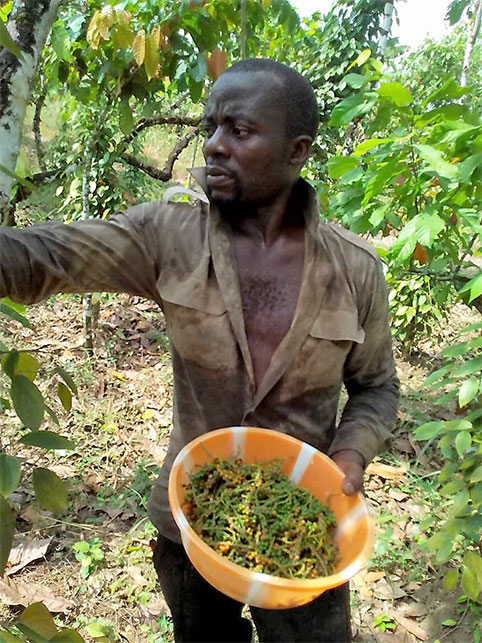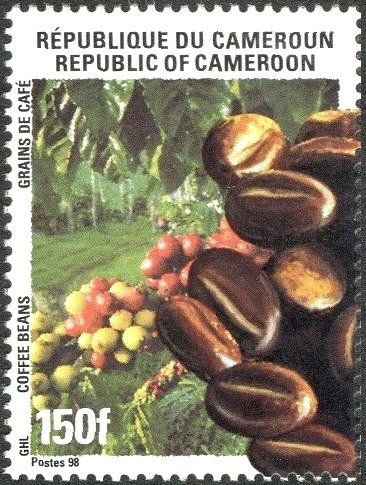Coffea Charreriana: naturally decaffeinated

A forgotten coffee variety from Central Africa may revolutionize decaffeinated coffee!
We know a lot about Arabica and Robusta, the two main varieties of coffee that are the apple of contention for ubiquitous coffee lovers. Among the other differences of the two varieties, the caffeine content is essential, with Robusta being much heavier than Arabica. But what if there were a caffeine free coffee by nature? The answer lies in the jungles of African Cameroon.
 A brief history of coffee in Cameroon
A brief history of coffee in Cameroon
Cameroon is a Central African country, which belongs to the "coffee belt". Coffee, along with cocoa, are among Africa's main export commodities, and stable pillars of its economy. Cameroon systematically cultivates both Robusta and Arabica, while in the ranking of coffee-makers, Cameroon comes in 31st, being in fact a rising power in the coffee field.
Coffee was introduced into the Central African state in the late 19th century by the German colonists who designed the first coffee plantations. Within just fifty years, coffee cultivation has expanded to a large part of the country, and along with endemic Arabica varieties, seeds have been imported from Indonesia and Jamaica. Imported varieties are also a major part of Cameroon coffee production and survive to this day. Over the years, Cameroon's once unstable coffee production has improved quantitatively and qualitatively with the help of Italian, French and Brazilian experts, and as a matter of course almost all production is exported, mainly to European countries.
But Cameroon's rainforests hides a secret that could turn the African country into an important "player" in the coffee world - the Charrier coffee!
What is Charrier Coffee?
Charrier coffee, scientifically named Coffea Charreriana belongs to the wider Robusta coffee family and is an endemic species of Cameroon. Charrieriana coffee trees thrive in a jungle environment in central Cameroon. Although an endemic, native plant of tropical African forests, it was only discovered in 1983 by the French researcher Adre Charrier, who had devoted his work to the study of coffee, with the official scientific classification of the plant measuring just over 10 years after its publication happened only in 2008.
The specialty of Charrieriana lies in the fact that this particular type of coffee is the only one in the world that while it has all the flavor and characteristics of coffee, contains literally no caffeine! Indeed, Charrier's caffeine content is comparable to that of decaffeinated caffeine, except that no treatment is required to remove caffeine, since the seeds of the plant have this property from the outset.
 What is the future of Charrier coffee?
What is the future of Charrier coffee?
Although coffee is wholesome, there are few who choose caffeine-free coffee, and because of gastronomic trends that dictate healthier and more natural eating habits, caffeine is often targeted, even if there is no real reason. At the same time, the process of removing caffeine is simpler than ever and naturally completely harmless to health, while maintaining the taste of coffee virtually unaltered. However, returning to a more 'natural' diet creates suspicion and mistrust towards decaffeinated coffee, as it entails.
It is precisely these conditions and emerging trends in the coffee market that create a gap that can be filled by Charrier - if we also take into account the public's recent love for terroir coffee and character of African coffee, we have serious indications that this strange, light Cameroon coffee will occupy us quite a lot in the years to come.
Suspicious factors include both the volatility of the African country and the limited production of Charrier, which so far is only available as a delicatessen option. It is certain that even if Charrier coffee is systematically cultivated, it will take years for it to gain significant market share or even displace decaffeinated. Still, the fact that the species is related to Robusta does not leave much promise for its taste and aroma.
Whatever the future of Charrier coffee, this unusual African coffee, the only thing for sure is the coffee world is full of new surprises.










